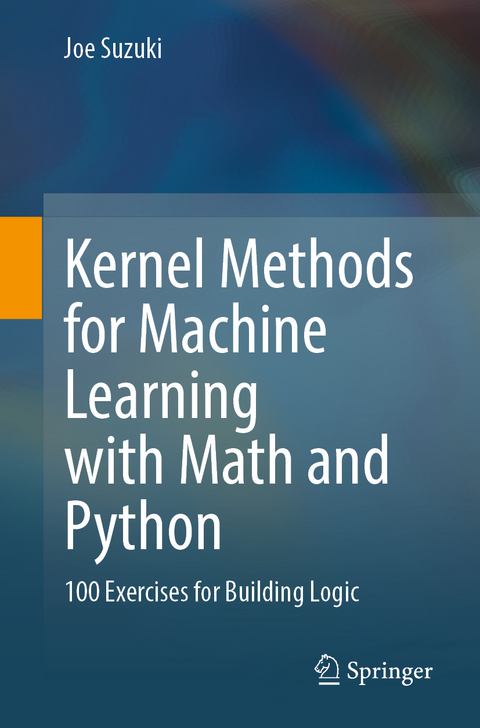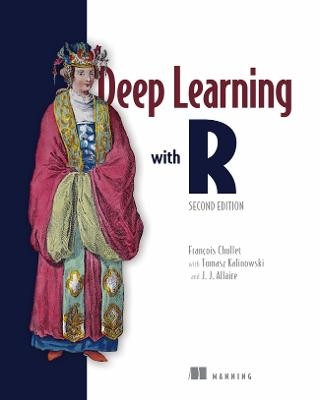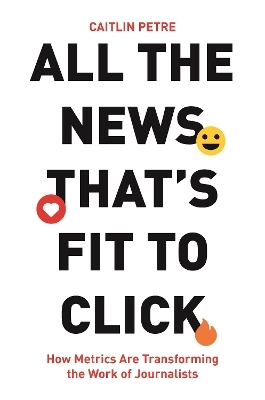
Kernel Methods for Machine Learning with Math and Python
100 Exercises for Building Logic
Seiten
2022
|
1st ed. 2022
Springer Verlag, Singapore
978-981-19-0400-4 (ISBN)
Springer Verlag, Singapore
978-981-19-0400-4 (ISBN)
The most crucial ability for machine learning and data science is mathematical logic for grasping their essence rather than relying on knowledge or experience. This textbook addresses the fundamentals of kernel methods for machine learning by considering relevant math problems and building Python programs.
The book’s main features are as follows:
The content is written in an easy-to-follow and self-contained style.
The book includes 100 exercises, which have been carefully selected and refined. As their solutions are provided in the main text, readers can solve all of the exercises by reading the book.
The mathematical premises of kernels are proven and the correct conclusions are provided, helping readers to understand the nature of kernels.
Source programs and running examples are presented to help readers acquire a deeper understanding of the mathematics used.
Once readers have a basic understanding of the functional analysistopics covered in Chapter 2, the applications are discussed in the subsequent chapters. Here, no prior knowledge of mathematics is assumed.
This book considers both the kernel for reproducing kernel Hilbert space (RKHS) and the kernel for the Gaussian process; a clear distinction is made between the two.
The book’s main features are as follows:
The content is written in an easy-to-follow and self-contained style.
The book includes 100 exercises, which have been carefully selected and refined. As their solutions are provided in the main text, readers can solve all of the exercises by reading the book.
The mathematical premises of kernels are proven and the correct conclusions are provided, helping readers to understand the nature of kernels.
Source programs and running examples are presented to help readers acquire a deeper understanding of the mathematics used.
Once readers have a basic understanding of the functional analysistopics covered in Chapter 2, the applications are discussed in the subsequent chapters. Here, no prior knowledge of mathematics is assumed.
This book considers both the kernel for reproducing kernel Hilbert space (RKHS) and the kernel for the Gaussian process; a clear distinction is made between the two.
Joe Suzuki is a professor of statistics at Osaka University, Japan. He has published more than 100 papers on graphical models and information theory. He is the author of a series of textbooks in machine learning published by Springer. - Statistical Learning with Math and R- Statistical Learning with Math and Python- Sparse Estimation with Math and R - Sparse Estimation with Math and Python- Kernel Methods for Machine Learning with Math and R - Kernel Methods for Machine Learning with Math and Python (This book)
Chapter 1: Positive Definite Kernels.- Chapter 2: Hilbert Spaces.- Chapter 3: Reproducing Kernel Hilbert Space.- Chapter 4: Kernel Computations.- Chapter 5: MMD and HSIC.- Chapter 6: Gaussian Processes and Functional Data Analyses.
| Erscheinungsdatum | 19.05.2022 |
|---|---|
| Zusatzinfo | 29 Illustrations, color; 3 Illustrations, black and white; XII, 208 p. 32 illus., 29 illus. in color. |
| Verlagsort | Singapore |
| Sprache | englisch |
| Maße | 155 x 235 mm |
| Themenwelt | Mathematik / Informatik ► Informatik ► Datenbanken |
| Informatik ► Theorie / Studium ► Algorithmen | |
| Informatik ► Theorie / Studium ► Künstliche Intelligenz / Robotik | |
| Mathematik / Informatik ► Mathematik ► Computerprogramme / Computeralgebra | |
| ISBN-10 | 981-19-0400-6 / 9811904006 |
| ISBN-13 | 978-981-19-0400-4 / 9789811904004 |
| Zustand | Neuware |
| Informationen gemäß Produktsicherheitsverordnung (GPSR) | |
| Haben Sie eine Frage zum Produkt? |
Mehr entdecken
aus dem Bereich
aus dem Bereich
Buch | Softcover (2024)
Lehmanns Media (Verlag)
39,99 €
how metrics are transforming the work of journalists
Buch | Softcover (2024)
Princeton University Press (Verlag)
23,65 €


